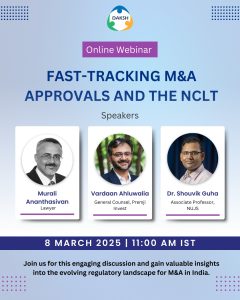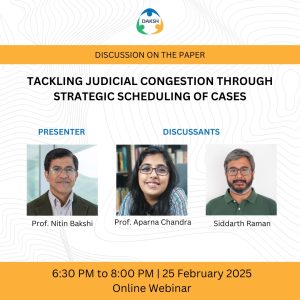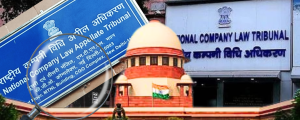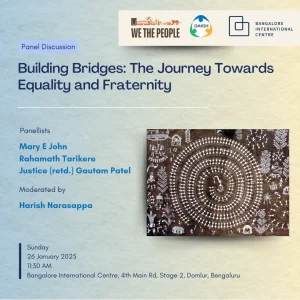

The Model Code of Conduct
- Leah Verghese
- /
- The DAKSH Podcast /
- The Model Code of Conduct
References
1. Expecting Model Code of Conduct to kick in, government departments speedrun project approvals https://economictimes.indiatimes.com/news/elections/lok-sabha/india/expecting-model-code-of-conduct-to-kick-in-government-departments-speedrun-project-approvals/articleshow/108538728.cms?utm_source=contentofinterest&utm_medium=text&utm_campaign=cppst
2. Lok Sabha elections 2019: ₹3000 crore haul by Election Commission, highest in Lok Sabha polls https://www.hindustantimes.com/lok-sabha-elections/lok-sabha-elections-2019-rs-3000-crore-haul-by-election-commission-highest-in-lok-sabha-polls/story-ugdYhuN5l2MNS2ppYRGWlI.html
3. Lok Sabha polls cancelled in Tamil Nadu’s Vellore after massive cash haul https://www.indiatoday.in/elections/lok-sabha-2019/story/lok-sabha-polls-cancelled-in-vellore-after-massive-cash-haul-1503419-2019-04-16
4. Mamata Banerjee’s appeal to Muslims violated model code of conduct, says Election Commission https://www.hindustantimes.com/elections/west-bengal-assembly-election/mamata-banerjee-s-appeal-to-muslims-violated-model-code-of-conduct-says-ec-101617803773352.html
5. Model Code of Conduct for the Guidance of Political Parties and Candidates https://tmp.eci.gov.in/mcc
CREDITS:
Host: Leah Verghese
This is a Maed in India production.
Producer: Sean D’mello
Sound Mixing: Lakshman Parsuram
Project Supervisor: Shaun Fanthome
Research Assistance: Manushree Sarkar
Hello and welcome to the DAKSH Podcast. I’m your host, Leah. I hope you’ve listened to our episode on the Election Commission. Today’s episode is a continuation on the theme of elections.
In the run-up to the 2024 Lok Sabha elections, there was one common sight that every Indian got accustomed to. The inauguration or unveiling of a brand new flyover or a railway station in their vicinity.
All of this was strategically done by politicians and political parties as they made a last-ditch appeal to voters. But then suddenly, after March 15th, 2024, it all stopped.
Political posters were torn down and graffiti featuring political propaganda was blackened. We began to hear the phrase model code more and more each time we turned on the news. So what changed?
For one, the 2024 election schedule was released on March 15th. Following the release of that schedule, the Election Commission, or the EC,
the governing body responsible for overseeing a free and fair election, enforced the Model Code of Conduct. First introduced in the 1971 general elections,
the Model Code lays down the basic guidelines for how politicians and their parties must conduct themselves in the lead-up to an election. The objective of the Model Code is to ensure free and fair elections
by promoting a level playing field among political parties and preventing the misuse of the model code. The Model Code also prohibits the election process for electoral gains and misleading of voters by fraudulent means.
The Model Code prohibits any activity that may create tension and division among different sections of society, based on religion, caste, community or language.
Political parties also can’t make false promises, bribe voters, or indulge in any form of corruption to secure votes.
Besides those running for elections, there are also restrictions on those covering the elections, meaning, the media. To avoid influencing voter behavior,
media outlets cannot publish exit polls until the entire election process has been completed. These outlets are also expected to provide accurate, fair and impartial coverage
of parties and their candidates. From the time the Model Code is in effect, the ruling party at the center or in the states
has to ensure that they don’t use their official position while campaigning. That’s why, no new policy, project or scheme that could sway voter behavior can be announced during this period.
These parties also have to make sure that no public funds are utilized to improve their chances of victory. Now, I’m sure many of you who are listening are shaking your head.
We’ve all seen and heard plenty of stories of politicians and parties misbehaving and ignoring the Model Code of Conduct. In 2021, the EC Center noticed Mamata Banerjee,
Chief Minister of West Bengal, when she appealed to all Muslim voters in her state to unite against the BJP. The 2019 Lok Sabha elections saw the biggest seizure of drugs,
cash, liquor and precious metals from locations all over the country till date in any Indian election. A whopping total of 3,400 crore rupees. That year,
the EC cancelled the election of the Velor Lok Sabha constituency in Tamil Nadu after the Income Tax Department filed a complaint about a fraudulent fraudulent banknote worth 10.48 crore rupees
stashed in a warehouse allegedly owned by a worker of the DMK. So why are such violations of the Model Code so common?
Well, the word code gives us some clues. You see, this code of conduct has no statutory backing, meaning the EC’s hands are tied while trying to enforce it.
Sure, they can send a notice to a politician or a party for a breach of the Model Code, but the person or party can reply in writing, either accepting fault and apologising, or
rebutting the allegation. If they refute the allegations and are found guilty, they receive a written censure from the EC, a slap on the wrist given the nature of the offence. The
cancellation of an election like in Vellore is a very rare occurrence. Many people have argued and pushed for statutory backing for the model code, thus giving EC more power
to take action. But the moment the code becomes a law, it’s subject to judicial process which can last till well after the election cycle is complete. It is necessary for the EC to
be able to take swift action against errant politicians. The other big problem is that when the model code was created, it only covered candidates
and parties. That was sufficient for 1971, but so much has changed since then. Today,
Today, there’s a massive network of political strategists, IT cells, influencers, and online supporters who campaign on behalf of political parties.
These individuals and groups can post content that is in direct violation of the model code but will face no consequences. Here’s a good example.
In the 48 hours before polls are closed, parties are expected to maintain silence. However, this is easily and frequently flouted by third parties and influencers who continue
spending unlimited amounts of money to push a certain political agenda till polling day. It is especially problematic when we take into account the massive growth and influence of social media and the internet.
But the EC is stepping up. Its media certification and monitoring committees now oversee telecom operators, ISP, and social media experts.
It’s also making online political advertising more transparent and seeking data of online expenditure from Google, Facebook, X, and others.
It has even launched an app called SeaVigil where concerned individuals can report electoral misconduct.
Another big issue for this ongoing election is the use of AI or artificial intelligence to spread misinformation.
Ten years ago, deep fake audio or video seemed more like science fiction rather than reality. But not today. With generative AI tools available on our phones, interested parties can create very
realistic videos of politicians saying and doing things that aren’t real. This in turn can create chaos among voters who are unable to separate truth from fiction.
These AI-generated videos also provide politicians with an exit every time they make an actual statement that is problematic or draws the ire of voters. They can simply say that the video being circulated is fake.
Or that their profile was hacked.
Recently, the US Federal Communications Commission declared that using artificial intelligence-generated voices in phone calls is against the law.
This was following an incident where a fraudulent robocall impersonating President Joe Biden circulated ahead of the New Hampshire Democratic primary election.
New Hampshire residents received a call from an AI-generated voice which sounded just like Biden’s. against voting in the presidential primary and ask them to save their vote for the November general
election. Monitoring and tackling this challenge head-on will be quite an uphill task for the EC, which has little to no authority over social media platforms. Meta has launched a fact-checking
helpline on WhatsApp called Misinformation Combat Alliance. Google is using its own AI models to counter misinformation and implement stricter policies regarding election-related advertising
on its platforms. However, it’s good to remember that regulation generally trails innovation in this domain. Once a deepfake video is out there, it’s tough to control its spread.
All of these obstacles, from the new age challenges of AI and IT sales to old-school techniques like voter buying and false promises, makes the EC’s job of monitoring the elections
for the world’s largest democracy harder than ever before in its history. Will they succeed? Only time will tell.
Don’t forget to tap, follow or subscribe to us wherever you listen to your podcasts so that you don’t miss an episode. We would love to hear from you, so do share your feedback either by dropping us a review
or rating the podcast where podcast apps allow you to. Talk about it on social media. We’re using the
hashtag DAKSH Podcast. It really helps to get the word out there. Most of all, if you found some useful information that might help a friend or family member, share the episode with them.
A shout out to Manushree Saranjani for the amazing work he does in the field of communication. A special thank you to our production team at Made in India, our production head, Sean DeMello,
edited, mixed and mastered by Lakshman Parashuram and project supervision by Sean Fantham.
RECENT UPDATE


Webinar on Tackling Judicial Congestion Through Strategic Scheduling of Cases

Year in Review: NCLT and NCLAT Under the Supreme Court’s Microscope

